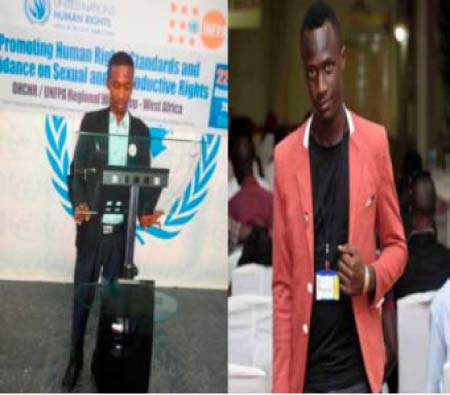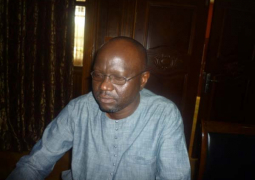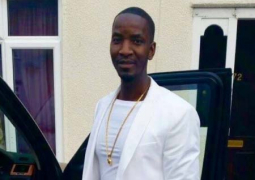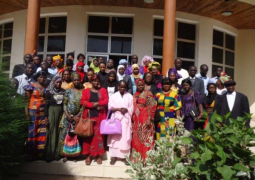
Activists
and Journalists active in the service of women and girls and issues affecting
them, yesterday spoke to this reporter on the occasion of International Women’s
Day 2017, which is on the theme: “Women in the Changing World of Work: Planet
50-50 by 2030” and under the campaign theme: “Be bold for change.”
8th
March every year was dedicated by the United Nations as International Women’s
Day to celebrate women and girls all over the world; to talk about issues
affecting them and influence policies and laws in solving these issues.
Amadou
O. Bah secretary general, Network of Journalists on Reproductive Health,
Population and Development, and the MD of Bwiam Community Radio, said women
should be bold enough to contest the National Assembly Elections.
The
National Assembly election is fast approaching and candidates are emerging,
mainly males; and it is high time women are given the opportunity to contest.
The women themselves should be bold enough, and come out of hiding to contest
the National Assembly elections.
Most
significant positions in the new government are being occupied by men, and some
women, who were also approached to take up positions, but that is not enough,
according to Mr Bah.
He
said “what men can do women can do even better, because women are more
trustworthy, serious with what they do and dedicated”.
He
has seen women as organization heads and managing successful projects, and
doing everything possible to ensure the completion of those projects; and that
commitment and seriousness shows that women are more than fit and ready to be
at the National Assembly, if supported and their campaigns financed.
Bah
added that it was high time that the rights of women are respected; and that
cannot be strengthened and enforced to the letter, if there is no 50%
representation of women in the National Assembly, he went on.
Women
have a pivotal role to play in the development of the country, and that is why
they are needed in the National Assembly, he continued.
On
the government’s commitment to ensure the right of women in accessing family
planning commodities and services in the country, Bah said it all comes down to
the attitude of men towards their wives.
He
said some men see their wives as properties and not partners, and as such they
tend to deprive them of the right to have access to FP commodities and
services.
The
government has a significant role to play in this situation, since they should
protect and promote the rights and welfare of the women of this country.
“We
are challenging the government to make sure that women’s right to access family
planning services and commodities are respected, protected and addressed.”
It
is only a healthy woman that can contribute to the upbringing of a healthy
family, which will in turn contribute to a healthier population whose problems
and concerns can be addressed easily by the government.
He said respecting a woman’s reproductive
health rights is the solution to a healthier and responsible population growth.
Andrew
Gibba, a youth show presenter with Paradise FM, the Activista deputy KM
chairman, information officer Your Change for Change, and women deliver scholar
2016, said the campaign theme: “Be bold for change”, means women and girls
should be celebrated every day, not only on women’s day.
“Be
bold for change” is to empower women and girls who are still caught up in the
culture of silence to break it, and to be bold enough to talk about issues
affecting them to not only their communities, but the world at large.”
All
over the globe, the ratio of men to women in parliament is always in favour of
males, and The Gambia is not an exception. “Democracy is about inclusion.”
The
National Assembly is a constitutional body responsible for lawmaking. These
functions require innovation, energy, skills and resilience. Women possess all
these qualities; hence they should be given the opportunity to participate
fully in governance.
“The
Assembly needs to tap the potentials of young women through engaging them in
policy-making. No society develops if it leaves out women and girls,” he said.
If
Gambia’s population is largely dominated by women and girls, and if we say that
democracy is government of the people, for and by the people, then it is
logical to say that the National Assembly should have enough representation of
women, he went on.
After
a massive sensitization on FGM in The Gambia, he is sure that the people now
know the risks attached to FGM, and that whatever positive aspects the society
use to say it has in the past, we now know that this is not the case.
The
clitoris that is cut is a very important organ of the female reproductive
system, which should not be tampered with.
Gibba,
therefore, called on the government to further strengthen the anti-FGM law, and
support women-led organizations to keep advocating for the end of FGM not only
in The Gambia, but the world at large.
Read Other Articles In Article (Archive)
Fasting and its health aspects
Jul 31, 2012, 10:44 AM




